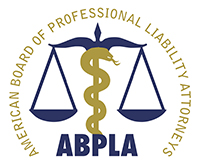
Is There a Link Between Lack of Oxygen at Birth and Disabilities?
Birth asphyxia, the condition in which a baby is deprived of oxygen at birth, is a leading cause of infant brain damage. Brain damage is a serious health concern, leading to lifelong consequences for a child.
Oxygen deprivation at birth can cause intellectual deficits and learning disabilities. When a baby is starved of oxygen, the tissue and cells within the body – especially the brain – begin to die, causing permanent brain damage. Once brain damage reaches a certain level, permanent disabilities can occur. These can include developmental delays, cognitive functioning problems, cerebral palsy, ADHD, and seizures.
If your baby suffered an injury, the birth injury lawyers at Mandell, Boisclair & Mandell, Ltd can help you determine if medical negligence played a role. We have the knowledge, skill, and resources to thoroughly investigate birth injury claims in which obstetrical malpractice may have caused harm or death.
Hypoxic Ischaemic Encephalopathy Linked to Developmental Delays
Hypoxic-Ischemic Encephalopathy, often referred to as HIE, is an umbrella term that describes improper brain function resulting from a lack of blood flow and oxygen. In moderate HIE cases, a child may develop brain dysfunctions such as cerebral palsy, learning disabilities, feeding problems, or seizures. In severe cases of HIE, a child may exhibit one or more of the previous conditions or even die as a result of the damage caused.
The Long Term Effects of Birth Asphyxia
A lack of oxygen at delivery can cause serious, long-lasting damage to the lungs, heart, muscles, and brain of a child. Oxygen deprivation during labor and delivery usually reveals itself with low Apgar scores, a system used by doctors to rate a newborn’s heart rate, breathing, muscle tone, reflexes, and skin color.
Apgar scores range from 0 to 10. Apgar scores of 0 to 3 that last longer than five minutes can be a sign of birth asphyxia. The extent of brain damage varies, depending on factors such as the baby’s oxygen level at birth, the amount of time the baby was starved of oxygen, and how promptly proper treatment was administered.
The following are common long-term effects of birth asphyxia and HIE:
- Motor and behavioral development issues that affect coordination and walking
- Learning disabilities that affect speech and thinking
- Blindness or visual impairment
- Epilepsy or seizure disorders
- Cerebral palsy
Speak With A Providence Birth Injury Attorney
If your baby or child has suffered brain damage due to a lack of oxygen before, during, or after delivery and you suspect that it may have been caused by any type of medical negligence, the law office of Mandell, Boisclair & Mandell can help. Our team has the experience, and more importantly, the specialized knowledge required to successfully present a case involving such delicate and critical matters.
You can contact us online anytime or call (401) 204-1438 to schedule an appointment for a FREE and confidential consultation. We’ll be happy to go over the details of your situation, give you an honest case evaluation, and discuss exactly what we can do to help you and your loved ones. We serve clients from Providence, Rhode Island and other nearby areas.





























